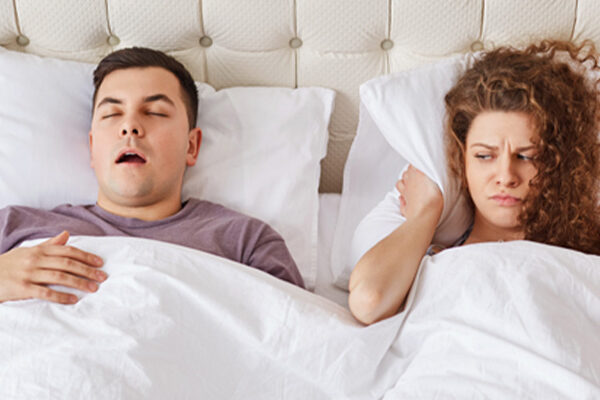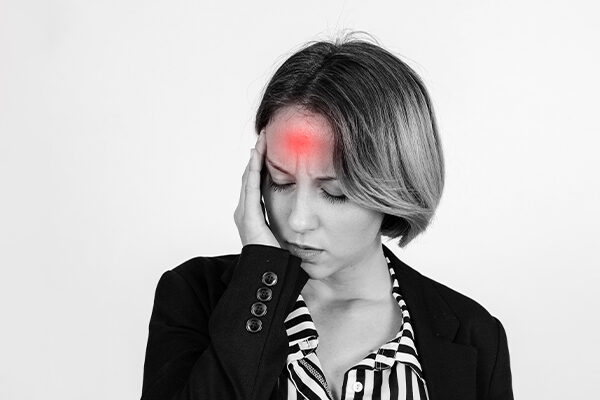Last Updated on February 28, 2023
Introduction
What is the number one symptom of menopause? What are the 34 symptoms of menopause? Will you experience all of them?
If you are having irregular periods or unexpected hot flashes, these could be signs of menopause. However, there is more to it. Read on to learn about what are the 34 symptoms of menopause and how you can prepare well for them.
When will menopause symptoms begin?
The process of menopause usually begins anywhere between 45 and 55 years of age. Menstrual periods first become irregular and stop due to reduced estrogen and progesterone.
Perimenopause is when your body is preparing for menopause. On the other hand, menopause means that you are no longer ovulating.
Why does menopause cause so many symptoms?
When the production of reproductive hormones slows down, not only do ovulation patterns change, other symptoms like difficulty sleeping, headaches, and dry mouth start to appear. It is because estrogen also helps regulate many functions within the body.
While your adrenal glands and fat cells excrete little estrogen, the ovaries produce most of this hormone for the body. As such, during menopause, when the ovaries stop producing estrogen, the body can feel the entire 34 symptoms of menopause.
What are the most severe symptoms of menopause?
Just because there are multiple symptoms of menopause doesn’t mean you will have all 34 symptoms of menopause!
Some women experience more symptoms, while others may sail through perimenopause like a breeze. The experience is unique for every woman, just like puberty.
According to Australian not-for-profit research:
- 20% of women will experience no menopause symptoms
- 60% experience mild to moderate menopause symptoms
- 20% can experience severe menopause symptoms
What are the 34 symptoms of menopause?
Some claim there are 34 symptoms of menopause; others say there can be 66, while others vouch there are 100!
While there are at least 34 symptoms of menopause, research shows three primary areas relate to menopause. These include:
Vasomotor symptoms:
Vasomotor symptoms are related to the constriction or dilation of blood vessels. Common manifestations include hot flashes, night sweating, blood pressure variation, and heart palpitations.
Dryness with dyspareunia (painful sex) symptoms:
Estrogen helps maintain vaginal lubrication and elasticity. Reduced estrogen may cause a “dry” vaginal feeling, which results in discomfort, irritation, and painful intercourse.
Interestingly, dryness during menopause not only affects the vagina but can cause a dry feeling on your skin, mouth, and eyes.
Difficulty sleeping/insomnia symptoms:
Again, alteration in estrogen levels is at the core of these symptoms.
34 Symptoms of Menopause:
Now that we understand menopause better, let us proceed toward finding the answer to the question: “what are the 34 symptoms of menopause?”. The most common menopause symptoms include:
- Irregular periods
Irregular periods are characteristic of oncoming menopause. The decline in estrogen means that your ovaries do not release an egg every month. Other changes to look out for may include:
- Heavy or lighter bleeding
- Skipping periods
- Getting periods at irregular intervals
Hot flashes
What is the number one symptom of menopause? 75% of women experience sudden sensations of warmth, heat, sweating, flushing, anxiety, and chills.
Hot flashes can be uncomfortable and interfere with a woman’s sleep cycle and daily activities. Studies show that only 25% of women with menopausal hot flashes seek medical help.
Revive Research Institute is conducting a clinical trial on hot flashes. Find out if you’re eligible.
Night sweats
Night sweats are a type of hot flashes that occur at night. During night sweats, your body temperature increases rapidly and is followed by excessive sweating. When you wake up with night sweats, you may feel cold.
These are the three most common of the 34 symptoms of menopause. Continue reading to find out more.
Insomnia
Insomnia means having trouble falling asleep. It is normal and fairly common in menopause.
Vaginal dryness
Changing hormones during menopause can lead to vaginal dryness. A study that included data from over 2,400 women showed that around one out of five women, above the age of 42 years, experience vaginal dryness. Some women may think of vaginal dryness when asked: what is the number one symptom of menopause?
Mood swings
Mood swings are sudden changes in emotions that can happen during menopause. Many factors can alter your mood during menopause, including fluctuation in hormones or fatigue brought on by menopausal insomnia.
Weight gain
Women typically gain about half a kilo a year between the ages of 45 and 55 years. While hormone fluctuations may contribute to weight changes, hormones are not the only cause.
A drop in muscle mass can also slow our metabolism.
Of the 34 symptoms of menopause, the following are the common psychological symptoms.
Memory lapses
Memory lapses are a common symptom of menopause. It is one of the most confusing of the 34 symptoms of menopause. Low estrogen can affect the brain’s functioning capacity and cause memory lapses.
Depression
Menopause can increase your risk of depression. It’s common to feel depressed during this stage of life when you’re juggling a busy lifestyle and vasomotor symptoms. Depressive symptoms during menopause are common in people with a family history of depression.
Also read: Perimenopause And Depression
Anxiety
Feelings of fear, dread, or nervous anticipation are normal. These anxious feelings usually go away with time without medical intervention. However, during menopause, these feelings can be recurrent and last longer.
These are the top 10 from the list of 34 symptoms of menopause. Keep on reading to figure out what are the 34 symptoms of menopause.
Panic disorder
Sudden increased anxiety is a sign of a panic disorder or panic attacks. Chest pain, dizziness, heart palpitations, and shortness of breath are symptoms of panic disorder. This is a common symptom during menopause due to hormonal fluctuations. Some ways to manage panic disorder symptoms include stress reduction, counseling, and taking certain medications.
Irritability
Even if you’re not depressed or anxious, it’s natural to feel easily irritated during menopause.
Fatigue
Rapid changes in hormone levels during menopause can cause fatigue.
Brain Fog
More than half of women experience brain fog after menopause. Brain fog is a “spaced out” feeling in which concentrating is difficult. Brain fog may impair cognitive function and exacerbate by poor sleep and other social stressors.
Decreased libido
Decreased libido (a reduced desire for sex) can happen during menopause because of lower levels of estrogens and androgens, which can decrease sexual arousal. Decreased libido is one of the sexual symptoms of the 34 symptoms of menopause.
Paresthesia (Tingling or pins and needles)
When listing the 34 symptoms of menopause, paresthesia is usually left out because it is not as common as other symptoms. It can feel like pins and needles in the arms, legs, and feet.
Burning mouth
Out of the 34 symptoms of menopause, a burning mouth sensation can be very frustrating.
Treatments include pain relief and numbing agents.
Electric shock sensations
“Electric shocks” occur due to hormonal changes affecting your nervous system. Consider talking to a doctor because there could be other underlying conditions.
Itchiness
Itchy skin (pruritus) is a common symptom of menopause. Once again, it is thought that fluctuation in estrogen may be the cause of this irritating menopause issue. Estrogen helps maintain healthy skin, so as hormone levels fall, the skin’s capacity to generate natural moisturizing oils decreases, leading to an itchy feeling.
Aches and joint pain are also a part of the 34 symptoms of menopause.
Joint pain
The prevalence of achy or stiff joints is related to a menopausal state. Such musculoskeletal discomfort is most often felt in the hands, knees, elbows, or neck and can cause existing injuries to reappear.
Muscle tension and aches
Muscle soreness or tension can occur from time to time, at any age; however, it can be particularly common during menopause with 1 in 6 women reporting daily aches and pains.
These happen due to many factors, including poor sleep quality, heightened stress or anxiety, and decreased estrogen levels.
Breast tenderness
Breast tenderness can occur in premenstrual syndrome, pregnancy, or menopause. During menopause, you may experience an aching, burning, or even sharp stabbing pain.
Headaches
Estrogen and progesterone not only regulate your sex organs but also affect chemicals in the brain that can induce a headache.
Of the 34 symptoms of menopause, digestive changes may include:
Food sensitivities/IBS (Irritable Bowel Syndrome)
Menopause may lead to new food sensitivities and even IBS (Irritable Bowel Syndrome) in some cases.
Food Cravings
Estrogen gives you a feeling of fullness, so when estrogen decreases, cravings (especially for high-carbohydrate foods) increase.
Changes in taste
One can experience a change in taste during menopause. It is not your mind playing tricks!
Changes in taste may also lead to an increased preference for sweeter foods.
Bloating
Although bloating happens due to a sedentary lifestyle and processed foods, it is also associated with menopause. Reduced estrogen is known to increase fluid retention leading to bloating.
The physical symptoms are part of the 34 symptoms of menopause. These include:
Thinning hair
Thinning hair can be concerning to women. It happens due to lower estrogen and progesterone and increased testosterone levels. Thin hair is a common and noticeable symptom during menopause.
Brittle nails
Just like hair, nails can also be affected in menopause. With reduced moisture levels, the nail may become dry and break easily.
Lastly, additional symptoms from the list of 34 symptoms of menopause are listed below.
Bladder incontinence
Over 50% of women experience bladder incontinence. It is especially noticeable when you sneeze, cough, or laugh loudly.
Dizzy spells
Dizziness is a common symptom of the 34 symptoms of menopause, but its exact cause is unknown. Studies link dizziness to menopausal anxiety, hormonal fluctuation, fatigue, and hot flashes.
Allergies
Sometimes old allergies can reappear during menopause because of lower estrogen levels leading to increased histamine production.
Osteoporosis
A condition commonly linked with menopause is osteoporosis, in which bones reduce density and can fracture more easily. When estrogen levels drop, the body breaks down more bone than it creates.
Irregular heartbeat
Another symptom of menopause can be heart palpitations (a fluttering sensation or the feeling of your heart pounding faster than usual).
To Sum Up
So this completes our list of 34 symptoms of menopause. While some believe there are 34 symptoms of menopause, there could be more! Changes in estrogen levels may affect the body in multiple ways, some of which are still unknown.
Some women may opt for hormonal replacement therapy or hypnotherapy. However, if you’re looking for a new management plan, you may wish to look into our clinical research trials.




